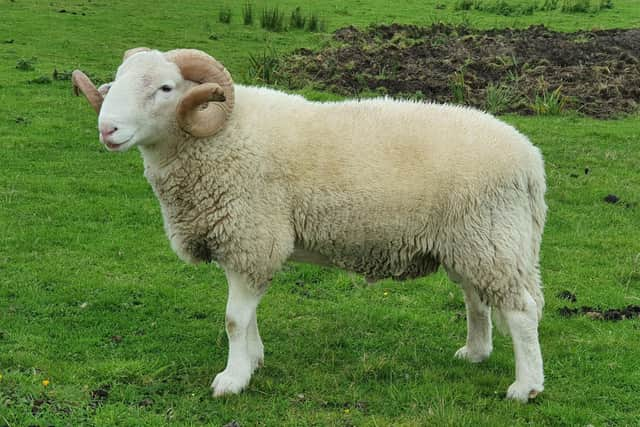Sheep that have served Yorkshire communities on the rare breeds red list
The Rare Breeds Survival Trust (RBST) and the Foundation for Common Land will show some Whitefaced Woodland sheep to visitors at a Leeds farm at a pop-up conservation event in a celebration of the UK’s native farm breeds and their continuing role in the ancient practice of Commoning.
The Whitefaced Woodland sheep is an irreplaceable part of Yorkshire’s heritage, and alongside other native upland breeds ‘Woodies’ have helped shape landscapes in the Dales and across the Pennines for centuries.
Advertisement
Hide AdAdvertisement
Hide AdOne of the UK’s largest native hill breeds, the Whitefaced Woodland’s hardiness and ability to thrive on poor quality grazing are breed characteristics that remain as important for upland farming of today and tomorrow as in times past.


The breed continues to play an important role in the ancient practice of shared land management of Commoning, particularly in the Yorkshire Dales.
It involves a group of farmers having “commoners rights” to graze their animals (mostly sheep but also cattle, pigs, horses or even ducks) on a shared piece of land – the common – without fences or boundaries between them.
However the breed’s numbers have declined and today it is listed as a ‘Priority’ breed on the RBST Watchlist with low numbers of pedigree Whitefaced Woodland sheep registered with the Combined Flock Book each year.
Advertisement
Hide AdAdvertisement
Hide AdRBST Chief Executive Christopher Price said: “As they have been bred for upland landscapes, Whitefaced Woodland sheep are really well suited to the hills and dales of Yorkshire, where they are able to thrive while also supporting the delicate ecosystem of these beautiful and important landscapes.
"Many native breed sheep, cattle and ponies have long grazed parts of the northern uplands through commoning, an ancient practice which is still crucial today as we look to address challenges such as biodiversity loss, economic sustainability, food quality and security, flood management and climate change.
The pop-up event is at Temple Newsam Home Farm, Leeds, on Saturday September 2, 10am – 4.30pm, and visitors can meet the breed and speak to conservation experts about them.
RBST’s event at Temple Newsam Home Farm is in partnership with the Foundation for Common Land.
Advertisement
Hide AdAdvertisement
Hide AdIt is part of a yearlong series made possible thanks to a grant from The National Lottery Heritage Fund, Take the Common to Town.
Sam Caraway, Project Manager at The Foundation for Common Land, said: “Commoning is a unique part of our heritage, a way of managing the land that’s older than the Magna Carta and is still at the heart of some of our most cherished landscapes.
"Take the Common to Town is a great opportunity to learn more about it and to meet some of the special breeds of animals that make it possible.”
Temple Newsam Home Farm is an RBST-accredited farm park. It is one of the largest rare breed centres in Europe.
